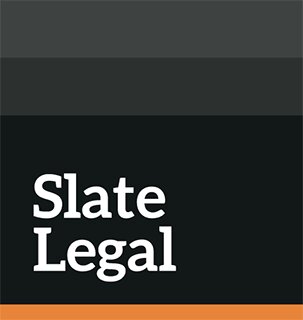Best Nonprofit & Charitable Organizations Lawyers in Newport
Share your needs with us, get contacted by law firms.
Free. Takes 2 min.
List of the best lawyers in Newport, United Kingdom
About Nonprofit & Charitable Organizations Law in Newport, United Kingdom
Nonprofit and charitable organizations in Newport, United Kingdom play a vital role in supporting local communities, providing social services, and advancing various causes. The law governing these organizations is designed to ensure transparency, accountability, and effectiveness. In Newport, as elsewhere in Wales and England, charities are typically subject to oversight by the Charity Commission for England and Wales, with rules also influenced by UK-wide legislation. Nonprofit entities can be structured in various legal forms including charitable trusts, charitable incorporated organizations (CIOs), unincorporated associations, and companies limited by guarantee. Understanding the legal framework is essential whether you are starting, running, or volunteering for a nonprofit or charity.
Why You May Need a Lawyer
There are many situations when expert legal advice is invaluable for those involved with nonprofits and charities in Newport. You may need a lawyer if you are:
- Setting up a new charity or nonprofit organization
- Registering with the Charity Commission
- Drafting or updating governing documents (like a constitution or memorandum of association)
- Ensuring compliance with charity law and tax regulations
- Handling disputes within trustees, volunteers, or employees
- Managing fundraising activities while following the law
- Changing your charity’s structure or purpose
- Dealing with grants, contracts, or property transactions
- Responding to investigations or issues raised by the Charity Commission
- Understanding your duties as a trustee or board member
Legal guidance can help avoid costly mistakes and safeguard your organization’s future.
Local Laws Overview
Nonprofit and charitable organizations in Newport are subject to several key legal requirements. Relevant laws come from both UK-wide legislation and Wales-specific considerations. Some core aspects include:
- Charity Registration: Charities in Newport must register with the Charity Commission if their annual income exceeds £5,000 or if they choose the Charitable Incorporated Organization (CIO) structure, regardless of income.
- Governing Documents: Every charity must have a clear and legally compliant governing document setting out its objectives and structure.
- Trustee Duties: Trustees are responsible for the overall management and must act in the charity’s best interests, keeping proper records and avoiding conflicts of interest.
- Reporting and Accounts: Charities must prepare annual accounts and reports, following the requirements set out by the Charity Commission, with stricter rules for larger charities.
- Fundraising Regulation: Fundraising activities are subject to several legal requirements, including the Fundraising Regulator’s rules and consumer protection laws.
- Data Protection: Charities must ensure compliance with the UK General Data Protection Regulation (UK GDPR) when handling personal data.
- Employment Law: If employing staff, charities must comply with UK employment laws including contracts, minimum wage, and health and safety regulations.
Local authorities in Newport may impose further requirements for activities such as public collections, events, and property usage.
Frequently Asked Questions
What is the process for registering a charity in Newport?
To register a charity in Newport, submit an application to the Charity Commission with supporting documents including your governing document, financial plans, and a clear explanation of charitable purposes. The process typically takes several months.
Do all nonprofits in Newport have to register as charities?
Not all nonprofits need to register as charities. Organizations not meeting the Charity Commission’s criteria may operate as community interest companies, unincorporated associations, or other forms but may not enjoy the same tax advantages as charities.
What legal structure is best for starting a charity?
The best structure depends on your activities and risk tolerance. A Charitable Incorporated Organization (CIO) offers limited liability and is popular among new charities. Charitable trusts and charitable companies limited by guarantee are other common options.
What are the legal duties of charity trustees?
Trustees must ensure the charity is carrying out its purposes, comply with the law and the charity’s rules, manage resources responsibly, act in the charity’s best interests, avoid conflicts of interest, and report to the Charity Commission as required.
What tax benefits do charities receive?
Registered charities can benefit from charitable status including Gift Aid, certain VAT concessions, business rate relief, and exemptions from corporation tax on certain income and gains. It is important to meet all eligibility criteria and maintain proper records.
How are fundraising activities regulated?
Fundraising must comply with various laws including consumer protection, data protection, and relevant lotteries legislation. Many charities in Newport follow the Code of Fundraising Practice set by the Fundraising Regulator.
What records must a charity keep?
Charities must keep records of income, expenditure, assets, liabilities, meeting minutes, and decisions. Financial records are essential for producing annual accounts and reports for the Charity Commission.
Can a charity operate outside the United Kingdom?
Yes, charities based in Newport can operate internationally but must ensure their overseas activities align with stated charitable purposes and UK charity law. Additional due diligence and controls are often required.
How can a charity change its legal structure or objectives?
Changing a charity’s structure or charitable purposes usually involves amending the governing document and seeking approval from the Charity Commission, especially if the changes are significant.
What happens if a charity is not compliant with charity law?
Non-compliance can lead to investigations, penalties, or removal from the charity register. Trustees might be held personally liable in cases of serious breaches or misconduct. Legal advice is strongly recommended if facing compliance issues.
Additional Resources
For further guidance and support in Newport and wider Wales, consider consulting the following resources:
- Charity Commission for England and Wales - regulatory body providing official guidance on charity law and compliance
- Newport City Council - for local permissions, event licenses, and community support
- Wales Council for Voluntary Action (WCVA) - offers advice on governance, funding, and training for Welsh charities
- HM Revenue and Customs (HMRC) - for advice on charity tax and Gift Aid
- Fundraising Regulator - sets standards for ethical fundraising practices
- The National Council for Voluntary Organisations (NCVO) - advice and resources on best practice in charity management
Next Steps
If you need legal assistance regarding a nonprofit or charitable organization in Newport:
- Identify your specific issue, whether it is formation, compliance, disputes, or another area
- Gather key documents such as your governing document, registration details, and recent correspondence from regulators
- Contact a solicitor or legal advisor with experience in charity law, preferably based in Wales or familiar with Newport’s local context
- Consult the resources above or seek a referral from the Charity Commission or Newport City Council
- Consider attending local workshops or seminars organized by WCVA or NCVO for practical guidance
Taking timely legal advice can protect your organization, ensure compliance, and help achieve your charitable mission more effectively.
Lawzana helps you find the best lawyers and law firms in Newport through a curated and pre-screened list of qualified legal professionals. Our platform offers rankings and detailed profiles of attorneys and law firms, allowing you to compare based on practice areas, including Nonprofit & Charitable Organizations, experience, and client feedback.
Each profile includes a description of the firm's areas of practice, client reviews, team members and partners, year of establishment, spoken languages, office locations, contact information, social media presence, and any published articles or resources. Most firms on our platform speak English and are experienced in both local and international legal matters.
Get a quote from top-rated law firms in Newport, United Kingdom — quickly, securely, and without unnecessary hassle.
Disclaimer:
The information provided on this page is for general informational purposes only and does not constitute legal advice. While we strive to ensure the accuracy and relevance of the content, legal information may change over time, and interpretations of the law can vary. You should always consult with a qualified legal professional for advice specific to your situation.
We disclaim all liability for actions taken or not taken based on the content of this page. If you believe any information is incorrect or outdated, please contact us, and we will review and update it where appropriate.









